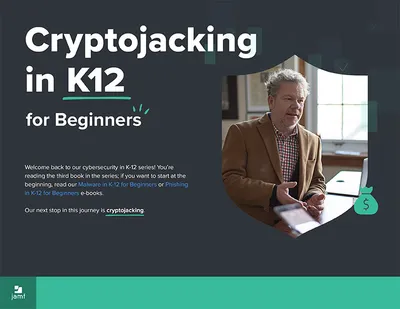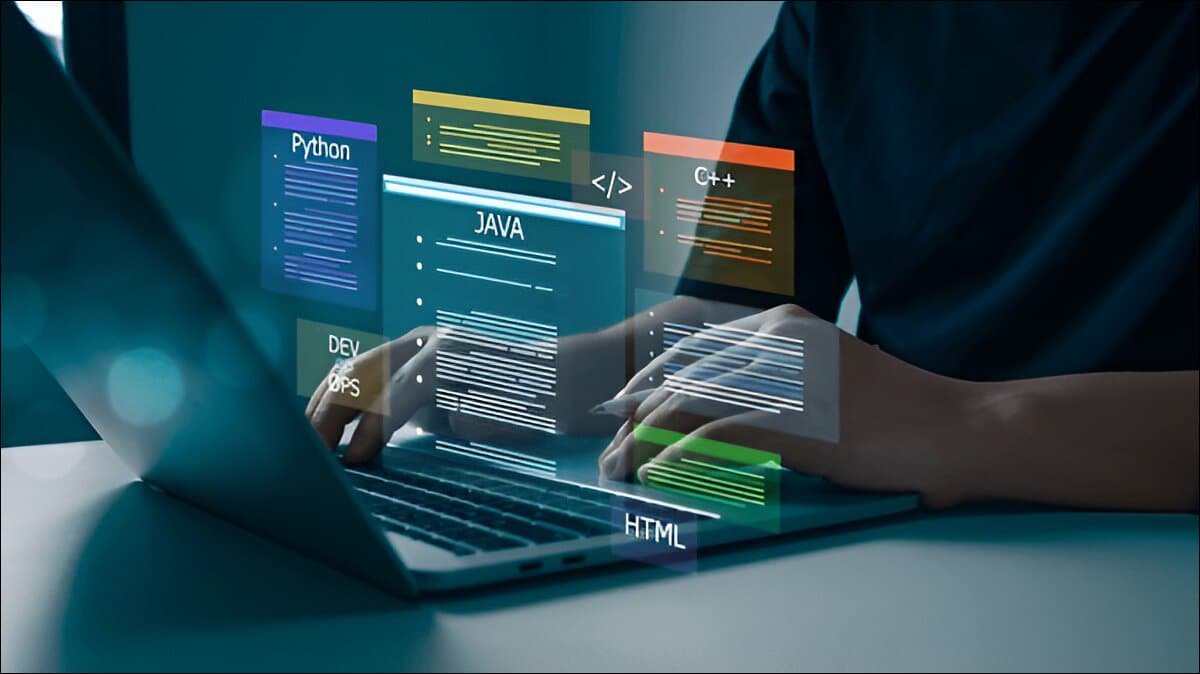Starting a journey in software development can seem overwhelming. Many wonder about the first step.
The suggested first step is to learn a programming language. This foundation opens the door to understanding software development. Software development is a dynamic and ever-evolving field. For beginners, the vast array of information and tools can be daunting. Choosing a programming language offers a clear starting point.
It provides essential skills and a base for further learning. Languages like Python or JavaScript are popular among beginners. They are versatile and have strong community support. Once you grasp the basics of a language, you can explore deeper concepts. The skills you gain here will serve as building blocks. They will guide you through the complex world of software development. Start small, and gradually, you’ll see progress.

Credit: www.infowindtech.com
Introduction To Software Development
Welcome to the world of software development! If you’re considering a career in this dynamic field, you’re on the brink of an exciting journey. Software development is the process of creating applications, systems, and programs that run on computers and other devices. It’s a skill that opens a world of possibilities, allowing you to bring ideas to life, solve real-world problems, and innovate for the future.
Why Choose Software Development?
Have you ever wondered what makes software development such an appealing career choice? It’s not just about writing code; it’s about creating solutions that impact lives and businesses. The demand for skilled developers is ever-growing, offering stability and growth.
Imagine working on a project that helps a small business streamline operations or developing an app that connects people across continents. Your work can make a tangible difference. Plus, software development encourages continuous learning, keeping your skills sharp and relevant.
Career Opportunities
The software development field is brimming with career opportunities. Whether you want to build websites, develop mobile apps, or create enterprise software, the options are vast. According to recent data, the tech industry is one of the fastest-growing sectors worldwide.
Software developers can work in diverse industries, from healthcare to finance to entertainment. You might find yourself working in a tech startup, a corporate giant, or even freelancing. The flexibility allows you to tailor your career path to your interests and lifestyle.
Reflect on this: where do you see yourself making the most impact? Your choice could lead to a fulfilling career with endless possibilities. Are you ready to start your journey in software development?

Credit: www.infowindtech.com
Assessing Your Interests And Skills
Starting a journey in software development can be exciting yet challenging. The first step is assessing your interests and skills. This helps you find where you fit best in the tech world. Knowing your strengths and passions will guide you toward a fulfilling career.
Identifying Strengths
Begin by identifying your strengths. Are you good at solving puzzles? Do you enjoy logical thinking? These skills are crucial in software development. They help you tackle complex problems. Another strength might be attention to detail. Software requires precision. Small mistakes can cause big issues. Being detail-oriented is a valuable asset.
Consider your ability to work in a team. Many projects require collaboration. Effective communication and teamwork lead to success. Reflect on your past experiences. Identify what you excel at. This knowledge will help you choose the right programming path.
Understanding Your Passion
Next, think about what excites you. Do you enjoy building things? Creating software is similar to constructing a building. It involves design, planning, and execution. If this excites you, software development might be your passion.
Perhaps you love helping others. Software can solve problems and improve lives. Your passion for helping can drive you to create impactful solutions. Explore different areas of software. Web development, mobile apps, data science—each offers unique opportunities. Understanding your passion will help you stay motivated and engaged.
Learning Basic Programming Concepts
Starting with learning basic programming concepts is the key to entering software development. Understanding variables, loops, and functions lays a strong foundation. These basics are essential for solving problems and creating software.
Embarking on a journey into software development can be both exciting and overwhelming. The first step is learning basic programming concepts, which serves as the foundation for everything you’ll build in your career. This step is crucial because it lays the groundwork for more complex topics. As someone who once struggled with the fundamentals, I can assure you that understanding these basics is key to avoiding frustration later on.
Coding Fundamentals
To begin, focus on coding fundamentals such as variables, data types, loops, and conditionals. These are the building blocks of programming. Think of them as the ABCs of software development. When I started, grasping these concepts felt like cracking a secret code.
You’ll often encounter variables, which are like containers holding data. Loops let you execute a block of code multiple times, saving you from repetitive tasks. Conditionals help you make decisions within your code, directing the flow based on certain conditions. Mastering these basics can make you feel like you’ve gained a superpower.
Popular Programming Languages
Choosing the right programming language is like picking the right tool for a job. Each language has its strengths, and your choice should align with your goals. Python is known for its simplicity and is great for beginners. It’s widely used in data science, web development, and more.
JavaScript is essential if you’re interested in web development. It allows you to create interactive websites. If you’re drawn to mobile apps, Swift is ideal for iOS development, while Kotlin is popular for Android. Remember, starting with one language doesn’t mean you can’t learn others later. It’s about getting comfortable with the logic and syntax of coding first.
Which language piques your interest the most? Dive in, experiment, and see where your curiosity takes you.
Choosing The Right Learning Path
Entering the world of software development is an exciting journey filled with endless possibilities. But where do you begin? Choosing the right learning path is crucial to your success. Whether you prefer to learn independently or seek structured guidance, the choice you make will shape your career in software development. Let’s explore the options available and see how you can take the first step towards your dream.
Self-study Vs Formal Education
Have you ever wondered if you could teach yourself programming? Many successful developers have taken the self-study route. It’s flexible and allows you to learn at your own pace. You can start with free coding tutorials online and gradually move to more complex projects.
On the other hand, formal education provides structured learning. Enrolling in a university or bootcamp offers a comprehensive curriculum and access to experienced instructors. This path can be valuable if you thrive in a classroom setting and need a clear roadmap.
Consider your learning style. Are you disciplined enough to learn independently, or do you need the structure that formal education provides? Choose the path that aligns with your strengths.
Online Resources And Courses
Online resources are a treasure trove for aspiring developers. Websites like Codecademy, Coursera, and Khan Academy offer courses in various programming languages. You can start small with basic HTML and CSS, then progress to JavaScript and Python.
These platforms often include interactive exercises and projects that simulate real-world problems. This practical approach helps you apply what you learn immediately. Imagine building a website or developing an app as you learn. How satisfying would that be?
Evaluate the course reviews and ratings before enrolling. Consider starting with free courses to gauge your interest. The key is to keep learning and expanding your skills.
Ultimately, the decision between self-study and formal education depends on your personal preferences and circumstances. Both paths can lead to success in software development. What’s your learning style? How do you plan to embark on your software development journey?
Building A Strong Foundation
Starting in software development requires a solid foundation. This foundation supports future learning and growth. It’s not just about learning coding languages. It’s about understanding the basics of problem-solving and logic. Building this foundation helps you adapt to new challenges.
Developing Problem-solving Skills
Problem-solving is crucial in software development. Start with simple puzzles and logic games. These activities sharpen your mind. They teach how to break down complex problems. Try to solve real-world issues using technology. This practice helps you think like a developer.
Practice And Application
Practical experience is key in software development. Begin with small projects. Build a simple website or app. Use coding platforms and online tutorials. They offer hands-on practice. Consistent practice improves your coding skills. Apply what you learn regularly to retain knowledge.
Join coding communities. Discuss with others and learn from their experiences. Collaboration offers different perspectives. It enhances your understanding and skills. Building projects with others is beneficial.
Creating Your First Project
Embarking on your software development journey? Start with your first project. It’s a practical way to learn coding. This step transforms theory into action. Create something tangible. It boosts confidence and skills. You learn by doing. It’s the heart of software development. You’ll solve real problems. Start simple and grow from there.
Project Ideas For Beginners
Choose a project that excites you. Build a personal website. It’s simple and rewarding. Or create a to-do list app. It’s practical and useful. Try a basic calculator. It’s a classic beginner project. Consider a small game. Like Tic-Tac-Toe. It’s fun and challenging. Each project teaches you new skills.
Tools And Platforms To Use
Pick the right tools for your project. Use Visual Studio Code. It’s popular and user-friendly. Try GitHub for version control. It helps track changes. Explore platforms like Codecademy. They offer free coding resources. Use Stack Overflow for community support. It’s a great place for answers. Choose tools that fit your needs.
Networking And Community Engagement
Entering the world of software development can be both exciting and overwhelming. One of the most valuable strategies to ease your entry is through networking and community engagement. By actively participating in developer communities and attending tech events, you not only gain knowledge but also build relationships that can propel your career forward.
Joining Developer Communities
Joining developer communities is a great way to start your journey. These communities, often found online or in local meetups, provide a platform where you can ask questions, share knowledge, and learn from others. Whether it’s a forum like Stack Overflow or a dedicated Facebook group, these spaces offer real-time problem-solving and support.
Engaging with these communities can also introduce you to mentors. Mentors can guide you, share their experiences, and help you avoid common pitfalls. Imagine having someone to turn to when you’re stuck on a coding problem or need career advice. It’s like having a cheat code in the gaming world.
Attending Tech Events
Attending tech events is another fantastic way to immerse yourself in the software development field. Events like hackathons, workshops, and conferences provide opportunities to learn about the latest technologies and trends. They also offer a chance to meet industry leaders and peers who share your passion.
Consider attending a local tech meetup or a larger conference. You may find that a casual conversation with a fellow attendee sparks a new idea or leads to a job opportunity. Plus, these events often have sessions or workshops that provide hands-on experience, which is invaluable for beginners.
Think about the connections you can make at these events. Who knows, the person you meet could become your future collaborator or employer. Are you ready to take the plunge and make the most of these opportunities?
Networking and community engagement are not just about gaining knowledge; they are about building a support system. As you step into the software development world, the people you meet can be your greatest resource. Are you making the most of your network?
Preparing For Job Applications
Embarking on a career in software development can be both exciting and daunting. One of the most crucial steps in this journey is preparing for job applications. This involves crafting a strong portfolio, polishing your resume, and honing your interview skills. By taking these steps, you will be well-prepared to present yourself as a competitive candidate in the software development industry.
Building A Portfolio
Your portfolio is your chance to showcase your skills and projects. Think of it as your personal gallery, where potential employers can see your work and understand your capabilities. Include a variety of projects that highlight different skills and technologies.
Start with projects that you are genuinely passionate about. This enthusiasm will shine through in your work. Consider including contributions to open source projects, which not only demonstrate your coding skills but also your ability to collaborate.
Use platforms like GitHub to host your code. Make sure your repository is well-documented. A clear README file can make a significant difference, making it easier for others to understand your project.
Resume And Interview Tips
Your resume should be concise and tailored to the job you are applying for. Highlight your technical skills, such as programming languages and frameworks, along with any relevant experience. Use bullet points for easy readability.
Consider the power of storytelling during interviews. Share a personal experience where you solved a problem or learned something valuable. This approach not only makes you memorable but also demonstrates your problem-solving skills.
Prepare to answer questions about your projects. Be ready to discuss the challenges you faced and how you overcame them. This shows potential employers that you are not just skilled but also resilient and adaptable.
Finally, practice common interview questions and conduct mock interviews with a friend. This will help build your confidence and improve your communication skills.
As you prepare for job applications, remember that the process is as much about showcasing your skills as it is about demonstrating your readiness to learn and grow. Are you ready to take the first step in your software development career?
Continuous Learning And Growth
Entering the world of software development can feel like stepping into a whirlwind of innovation and rapid change. The key to thriving in this dynamic field is embracing continuous learning and growth. It’s not just about mastering a particular programming language or technology; it’s about developing a mindset that welcomes new challenges and opportunities for development. Imagine the satisfaction of solving complex problems and continually refining your skills. This journey of growth keeps you relevant and competitive, ensuring you don’t just follow trends but set them.
Keeping Up With Industry Trends
In the tech world, change is the only constant. New frameworks, tools, and methodologies emerge regularly. How do you stay ahead? One approach is subscribing to industry newsletters or joining online communities. These platforms offer updates and insights into emerging technologies. Consider attending webinars or conferences to hear firsthand from experts. Ask yourself, are you ready to adapt and evolve as the industry shifts?
Advanced Skills And Specializations
While foundational knowledge is crucial, diving deeper into advanced skills can set you apart. Ever thought about specializing in areas like artificial intelligence or cybersecurity? These fields are growing rapidly and offer exciting career opportunities. Online courses and certifications are great ways to acquire specialized knowledge. What unique skills can you add to your toolkit to enhance your career prospects?
Continuous learning in software development is not just an option; it’s a necessity. Every line of code you write is a step towards personal growth and professional success. Keep questioning, keep learning, and you’ll find the path to a fulfilling career in software development.

Credit: www.rezaid.co.uk
Frequently Asked Questions
What is the Suggested First Step for Entering Software Development?
The first step of software development is requirement gathering. Developers collect and analyze user needs and project goals. This phase ensures a clear understanding of what the software should achieve. Proper documentation and stakeholder communication are crucial for successful outcomes.
What Is The First Step To becoming a Software Developer?
Begin by learning programming fundamentals through courses or online tutorials. Choose a language like Python or JavaScript.
What Is The First Phase Of Software Development?
The first phase of software development is the “Requirement Analysis” phase. It involves gathering and analyzing user requirements. Developers and stakeholders collaborate to understand the project’s objectives. This phase ensures that the software meets user needs and business goals. Accurate documentation is created to guide the development process.
How To Start Software Development As A Beginner?
Begin by learning a programming language like Python. Explore online tutorials and coding platforms. Practice consistently to build your skills. Join coding communities for support. Work on small projects to apply your knowledge and gain experience.
Conclusion
Starting your journey in software development can be exciting. Begin with learning the basics. Understand programming languages like Python or JavaScript. Explore online courses or tutorials. Practice coding every day. Build simple projects to apply your skills. Connect with a community of developers.
Share ideas and get feedback. Stay curious and keep learning. Software development is always evolving. Adapting is key to growth. Take small steps consistently. Each step brings you closer to your goal. Embrace challenges and enjoy the process. Your journey into software development starts now.
Ready, set, code!







2 responses to “What is the Suggested First Step for Entering Software Development: Beginner Guide”
[…] May 11, 2025 […]
[…] CRM software development involves several key steps. Each step is crucial for creating a system that meets business needs. […]